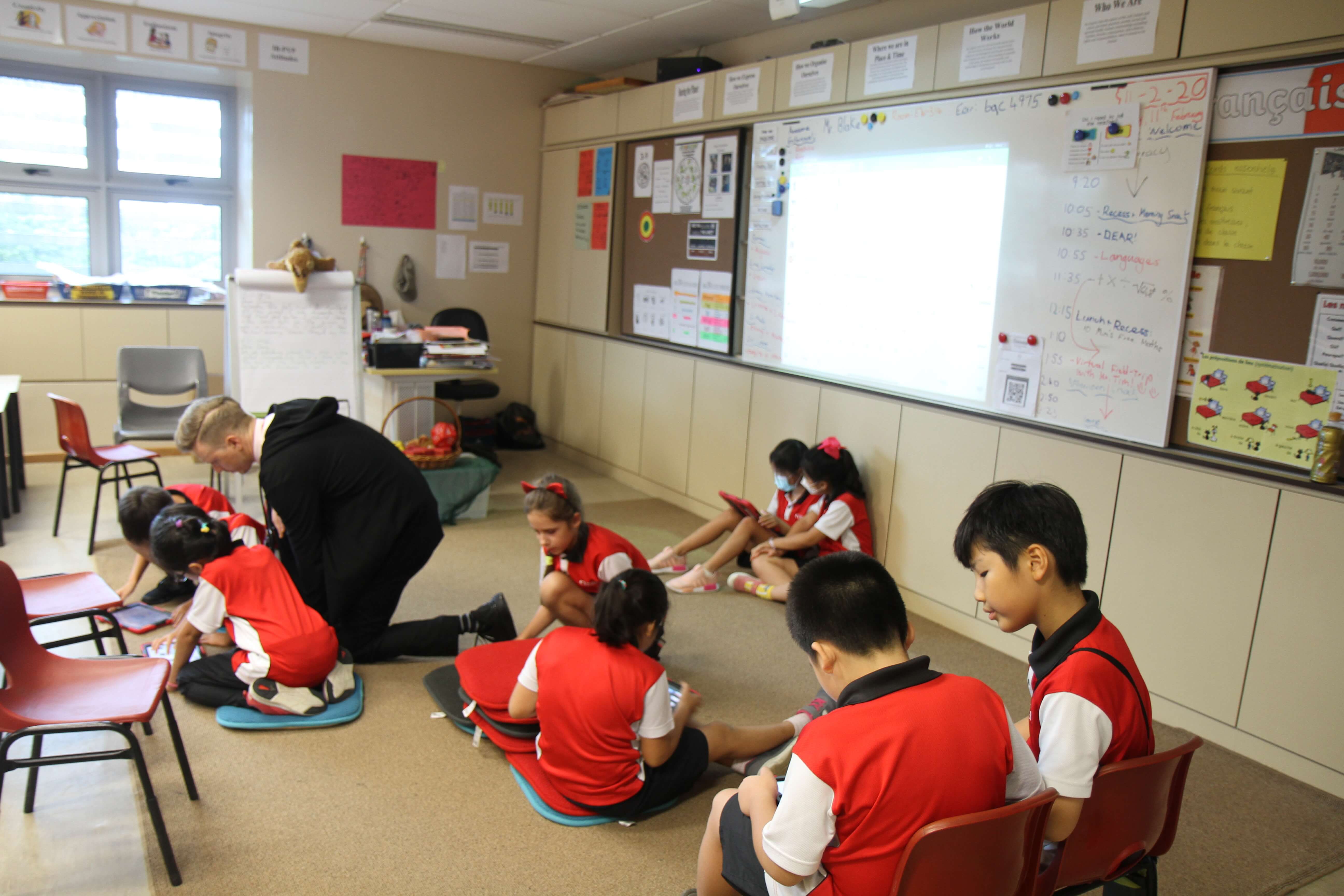The CIS Digital Literacy approach
Evolving from a “tech” focus to a creative and integrated approach
Tell us about the role of the Digital Literacy Team at CIS
Seven years ago, CIS started the One-To-World iPad/Macbook programmes and set up the Educational Tech Coach department. Ed Tech Coaches were responsible for coaching teachers on how to use technology in the classroom. Since then, these roles have evolved to that of the Digital Literacy Coach (DLC) - coaches who focus not just on function, but on the integration of responsible, balanced, and creative use of technology. Another major responsibility of our DLCs is to discover new educational tools to support teaching and learning. There are new developments daily and we want to ensure those tools align with our school philosophy, curriculum, and comply with protection protocols.
What is Digital citizenship?
As the use of technology is ever changing, the way we educate our students on how to use technology must be two-fold. First, users must know how to use the technology for its intended purpose and secondly, how to use it responsibly.
At CIS, we integrate the concept of Digital Citizenship into our students’ daily practices. Digital Citizenship is about using technology in a responsible and creative way. DLCs and teachers use the Common Sense Media Digital Citizenship Scope and Sequence to ensure students learn about all areas of digital life. The 6 main areas of focus are Media Balance & Well-Being, Privacy & Security, Digital Footprint & Identity, Relationship & Communication, Cyberbullying, Digital Drama & Hate Speech, and lastly News & Media Literacy.

Such topics are important for everyone, especially for our younger students in grade 4 who start to use their own devices on a daily basis. One of these students, Baoying Z shares: “digital citizenship is important because you have to keep safe by not posting your entire life online and be careful about the websites you visit.” A view shared by her classmate Jack C, who also pointed out that even online images have the potential to infect computers with a virus.
Learning to be safe online is one of the core components of digital citizenship. Educating and building trust with students so they can share their digital problems with teachers, DLCs, counsellors, or principals is our main objective. We want students to be able to share even when things go “wrong” to know that we will be there to help them resolve situations.
DLCs work with grade-level teams and advisory classes to integrate Digital Citizenship lessons into our curriculum. For example, in Art, students learn how an image can be manipulated. DLCs also follow up every digital incident at school to investigate what happened and work with students to reflect and set goals for future improvement.
Digital footprint awareness
Everyone has a digital presence, and we must be aware of this, and maintain our presence to the best of our ability. At CIS we do not promote the use of social media to students as it is not required for school. However, we know this is part of students' daily lives so we want to make sure we inform them of the pros and cons of an online presence and how that may be perceived by a future employer.
Our DLCs reach out to experts to engage the student body on building and maintaining a balanced profile online. A recent example was inviting Olivia Lee, Linkedin Talent & Learning specialist to speak to our grade 12 students. Olivia presented students with options for building an online presence for professional reasons.
Pratham R, one of the students who attended the session, said: “despite having been a Linkedin user for the past 2 years, I was able to learn new things about how Linkedin works and increase my understanding of topics I already know. Learning more about Linkedin Learning has also been interesting. I was able to make use of it during the circuit breaker period to develop new skills like coding and marketing.”
A CIS community working together
Helping our students become digitally literate is not a one-person job. It involves the support of our entire community; students, teachers, and parents; working together. This is why DLCs hold monthly parent sessions to share the concepts of digital citizenship, technology integration, creativity and more. These sessions are usually popular with parents like Ms Marie-Benedicte. She said: “unless we work full time in an IT related field, we have to keep up with the ever-evolving technology and stay better connected with our children who are able to pick up digital skills much faster.”
Our DLC team also offers virtual support through the Parent Support Page on My.CIS, and we encourage you to visit to access many valuable resources for digital parenting tips and tricks.
Lastly, our annual Digital Wellbeing week challenges our community to think about the amount of time they spend online and how they are interacting with their digital world. Our goal is proactive digital citizens who think critically and evaluate all the information they receive (from whatever source) and that they present to the world.
Note: These photos were taken pre-COVID, when masks and social distancing were not required.